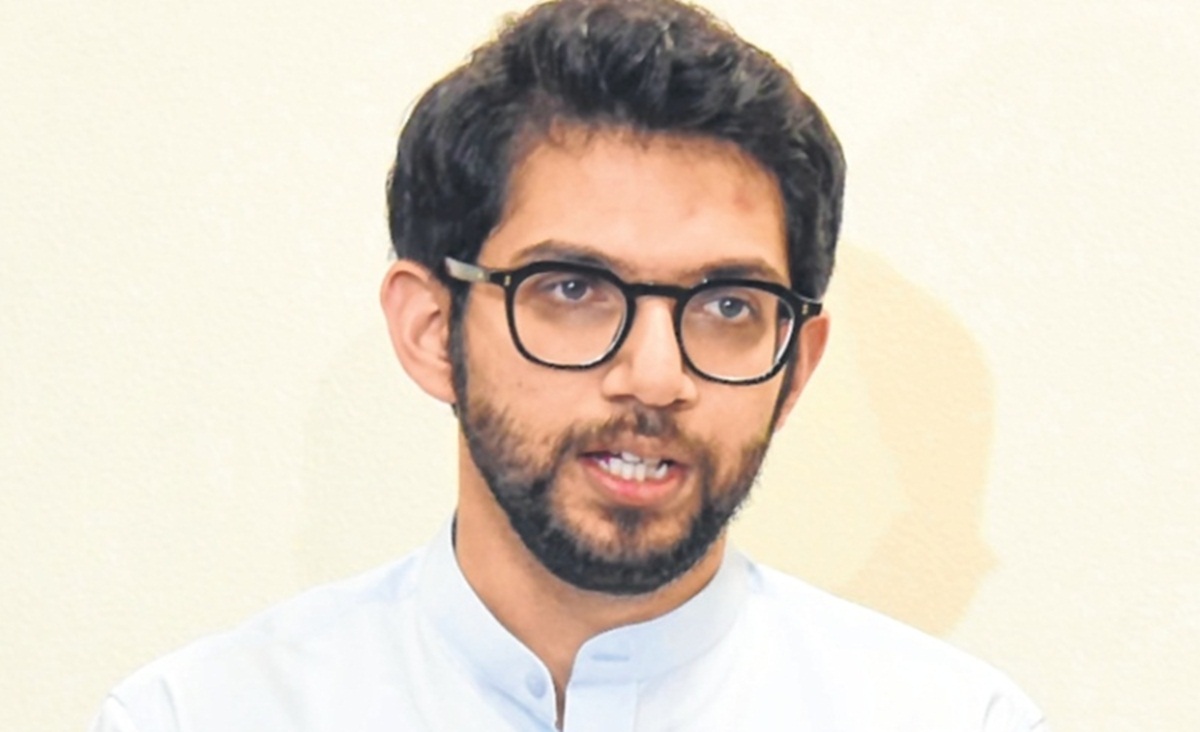X: @vivekbhavsar
The Indian Ocean, a vital maritime expanse, has long been an arena for geopolitical maneuvering, with nations like India and China vying for influence. At the heart of this strategic contest lies the Maldives, a small island nation whose significance far exceeds its size. Historically, India has been the Maldives’ closest partner, but recent developments suggest a nuanced shift in this dynamic.
President Mohamed Muizzu’s administration, which assumed office in November 2023, has introduced policies that reflect a recalibration of the Maldives’ foreign relations, balancing ties with both New Delhi and Beijing. This evolution raises critical questions about the future of India-Maldives relations and the broader implications for regional security and economic cooperation.
India and the Maldives share deep-rooted ties, anchored in history, culture, trade, and security cooperation. India was among the first nations to recognise the Maldives after its independence in 1965, laying the foundation for a robust bilateral relationship.
In 1988, India launched Operation Cactus, a decisive military intervention that successfully thwarted a coup attempt against then-President Maumoon Abdul Gayoom, solidifying India’s role as a reliable security partner.
India has consistently been the Maldives’ first responder in times of crisis, including during the 2004 tsunami and the COVID-19 pandemic. Development assistance, educational scholarships, medical aid, and trade agreements have further cemented ties.
However, the relationship has experienced fluctuations, influenced by the Maldives’ internal political shifts and external engagements, notably with China.
Under President Mohamed Muizzu, the Maldives has witnessed a recalibration of its foreign policy. The Muizzu administration requested the replacement of Indian military personnel operating three aviation platforms in the Maldives with civilian staff, reflecting a nuanced approach to foreign military presence.
The Maldives has sought to deepen economic cooperation with China, engaging in discussions to bolster infrastructure development and economic ties.
Diplomatic tensions arose due to derogatory remarks about Indian tourists and Prime Minister Narendra Modi by Maldivian officials and influencers, leading to a boycott campaign by Indian travelers. This had a tangible impact on the Maldives’ tourism industry, which heavily depends on Indian visitors.
Despite recent challenges, both nations have undertaken efforts to reinforce their longstanding partnership.
In October 2024, Maldivian President Mohamed Muizzu undertook his first state visit to New Delhi, marking a significant step in mending previously strained relations. During this visit, President Muizzu referred to India as a “valued partner,” signaling a commitment to bolster bilateral ties. The discussions culminated in the signing of a comprehensive economic and maritime security partnership, reflecting a mutual dedication to enhancing cooperation across various sectors.
To support the Maldivian economy, India extended substantial financial assistance, including a $100 million subscription to Maldivian Treasury bills and a ₹3,000 crore currency swap arrangement. These measures aim to stabilise the Maldivian economy and manage its debt distress. Additionally, both nations have announced new joint infrastructure projects and are exploring a Free Trade Agreement (FTA), underscoring the deepening economic interdependence between the two countries.
Defence cooperation remains a cornerstone of India-Maldives relations. In 2024, India extended a $50 million line of credit to the Maldives for defence projects, primarily for the development and maintenance of the Uthuru Thila Falhu (UTF) Naval Base. This initiative aims to enhance the Maldives’ maritime security capabilities, reflecting a shared commitment to ensuring stability in the Indian Ocean region.
The Maldives has been grappling with a severe economic crisis, exacerbated by high public debt and dwindling foreign reserves. In October 2024, the Maldivian government appointed Centerview Partners as debt advisers to navigate the financial crunch and explore restructuring options. India has been closely monitoring the situation, offering financial support to help stabilize the Maldivian economy.
Maldivian Foreign Minister Dr. Abdulla Khaleel visited New Delhi, engaging in bilateral discussions with India’s External Affairs Minister Dr. S. Jaishankar. Both ministers reviewed progress on agreements established during President Muizzu’s state visit, underscoring a mutual commitment to strengthening bilateral relations.
A key outcome of the talks was the signing of an agreement to implement the next phase of High Impact Community Development Projects (HICDP) in the Maldives, aimed at enhancing socio-economic development at the grassroots level.
The evolving dynamics in the Maldives’ foreign policy present several considerations for India. The Maldives’ strategic location along key shipping lanes is crucial for India’s maritime security. Any shift in the Maldives’ foreign policy could influence the security architecture of the Indian Ocean region.
India has been a major contributor to the Maldives’ infrastructure projects, health sector, and education system. A reorientation in the Maldives’ foreign relations could impact India’s economic engagement and investment opportunities.
To navigate the evolving dynamics, India could consider the following approaches: Continuing to offer economic assistance and infrastructure support that directly benefits the Maldivian populace can strengthen bilateral ties. Initiatives such as the Maldives National Defence Force (MNDF) ‘Ekatha’ harbour project at Uthuru Thila Falhu (UTF), with India’s assistance, are pivotal in augmenting the Maldives’ operational capabilities.
Strengthening ties with other regional actors, such as Sri Lanka, Mauritius, and Seychelles, can contribute to a robust Indian Ocean security network, balancing external influences.
Given that India was the largest source market for Maldivian tourism until 2023, promoting people-to-people ties through cultural exchanges and educational programs can foster goodwill.
Recognising the Maldives’ history of political shifts, India should remain engaged without reacting impulsively, as political tides may shift in the future.
India-Maldives relations are at a pivotal juncture. While the current Maldivian administration seeks to balance its foreign relations, India, as a longstanding partner, must navigate this phase with strategic patience and sustained engagement. The Indian Ocean remains a contested geopolitical space, and how New Delhi manages its relations with Malé in the coming years will be crucial in determining its broader influence in the region.
By remaining a reliable and non-intrusive partner, India can ensure that its engagement with the Maldives prioritizes long-term strategic and economic cooperation over short-term political fluctuatinns.








clomid price can i purchase cheap clomiphene without rx where can i buy generic clomiphene tablets can i purchase cheap clomiphene prices how can i get generic clomiphene tablets where to buy generic clomiphene pill can i order generic clomiphene without insurance
More posts like this would force the blogosphere more useful.
order azithromycin pills – order azithromycin 500mg online metronidazole 400mg generic
generic semaglutide 14 mg – buy cheap generic periactin order generic cyproheptadine 4 mg
cost nexium 20mg – https://anexamate.com/ buy nexium without a prescription
order coumadin 5mg online cheap – https://coumamide.com/ order losartan online cheap
buy mobic without a prescription – https://moboxsin.com/ brand mobic 7.5mg
best ed medication – https://fastedtotake.com/ best non prescription ed pills
buy amoxicillin no prescription – buy cheap generic amoxil order amoxicillin online
cenforce order online – https://cenforcers.com/# cenforce 50mg price
what does cialis look like – https://ciltadgn.com/ cialis dosages
where can i buy cialis – strong tadafl cialis 10mg ireland
ranitidine 150mg generic – https://aranitidine.com/ brand zantac 300mg
generic viagra 50 mg – site where can i buy the viagra
This is the kind of content I enjoy reading. sitio web
Greetings! Utter useful advice within this article! It’s the scarcely changes which wish make the largest changes. Thanks a quantity towards sharing! https://buyfastonl.com/gabapentin.html
The thoroughness in this piece is noteworthy. https://ursxdol.com/doxycycline-antibiotic/
More posts like this would create the online play more useful. https://prohnrg.com/product/orlistat-pills-di/
More peace pieces like this would create the интернет better. https://aranitidine.com/fr/clenbuterol/
The reconditeness in this serving is exceptional. https://ondactone.com/simvastatin/
This is the kind of post I find helpful.
https://proisotrepl.com/product/methotrexate/
The thoroughness in this piece is noteworthy. http://www.gtcm.info/home.php?mod=space&uid=1157017
orlistat online buy – https://asacostat.com/ buy orlistat paypal
The thoroughness in this draft is noteworthy. https://experthax.com/forum/member.php?action=profile&uid=124845
You can keep yourself and your stock close being alert when buying pharmaceutical online. Some pharmacy websites operate legally and provide convenience, reclusion, cost savings and safeguards over the extent of purchasing medicines. buy in TerbinaPharmacy https://terbinafines.com/product/doxazosin.html doxazosin
More posts like this would bring about the blogosphere more useful. mГ©dicament stromectol
With thanks. Loads of knowledge!
专业构建与管理谷歌站群网络,助力品牌实现全域流量的强势增长。谷歌站群
Với giao diện mượt mà và ưu đãi hấp dẫn, MM88 là lựa chọn lý tưởng cho các tín đồ giải trí trực tuyến.
Tham gia cộng đồng game thủ tại Go88 để trải nghiệm các trò chơi bài, poker phổ biến nhất hiện nay.
Khám phá thế giới giải trí trực tuyến đỉnh cao tại MM88, nơi mang đến những trải nghiệm cá cược thể thao và casino sống động.
iwin – nền tảng game bài đổi thưởng uy tín, nơi bạn có thể thử vận may và tận hưởng nhiều tựa game hấp
best casino near san diego ca
best online casinos usa
inetbet no deposit bonus codes chipy
mgm grand sports betting app online casino betmgm play mgm grand betting app